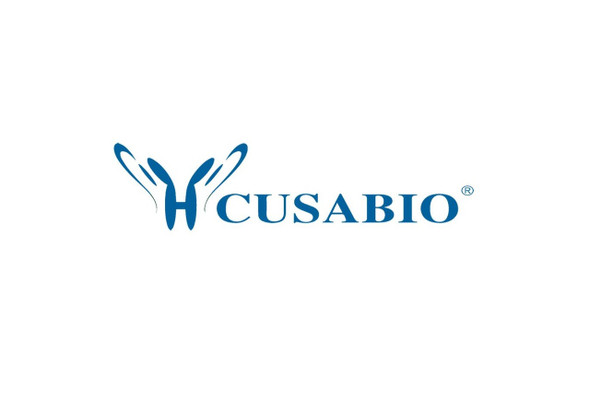Cusabio Escherichia coli Recombinants
Recombinant Escherichia coli dITP/XTP pyrophosphatase (rdgB) | CSB-EP345967ENV
- SKU:
- CSB-EP345967ENV
- Availability:
- 3 - 7 Working Days
Description
Recombinant Escherichia coli dITP/XTP pyrophosphatase (rdgB) | CSB-EP345967ENV | Cusabio
Alternative Name(s): Deoxyribonucleoside triphosphate pyrophosphohydrolase1 Inosine triphosphate pyrophosphatase1 Short name: ITPase1 Non-canonical purine NTP pyrophosphataseUniRule annotation1 Non-standard purine NTP pyrophosphataseUniRule annotation1 Nucleoside-triphosphate diphosphataseUniRule annotation1 Nucleoside-triphosphate pyrophosphataseUniRule annotation1 Short name: NTPase yggV
Gene Names: rdgB
Research Areas: Others
Organism: Escherichia coli (strain K12)
AA Sequence: MQKVVLATGNVGKVRELASLLSDFGLDIVAQTDLGVDSAEETGLTFIENAILKARHAAKVTALPAIADDSGLAVDVLGGAPGIYSARYSGEDATDQKNLQKLLETMKDVPDDQRQARFHCVLVYLRHAEDPTPLVCHGSWPGVITREPAGTGGFGYDPIFFVPSEGKTAAELTREEKSAISHRGQALKLLLDALRNG
Source: E.coli
Tag Info: N-terminal 10xHis-SUMO-tagged and C-terminal Myc-tagged
Expression Region: 1-197aa
Sequence Info: Full Length
MW: 41 kDa
Purity: Greater than 85% as determined by SDS-PAGE.
Relevance: Pyrophosphatase that catalyzes the hydrolysis of nucleoside triphosphates to their monophosphate derivatives, with a high preference for the non-canonical purine nucleotides XTP (xanthosine triphosphate), dITP (deoxyinosine triphosphate) and ITP. Can also efficiently hydrolyze 2'-deoxy-N-6-hydroxylaminopurine triphosphate (dHAPTP). Seems to function as a house-cleaning enzyme that removes non-canonical purine nucleotides from the nucleotide pool, thus preventing their incorporation into DNA/RNA and avoiding chromosomal lesions.To a much lesser extent,is also able to hydrolyze GTP, dGTP and dUTP, but shows very low activity toward the canonical nucleotides dATP, dCTP and dTTP and toward 8-oxo-dGTP, purine deoxyribose triphosphate, 2-aminopurine deoxyribose triphosphate and 2,6-diaminopurine deoxyribose triphosphate
Reference: "Highly accurate genome sequences of Escherichia coli K-12 strains MG1655 and W3110." Hayashi K., Morooka N., Yamamoto Y., Fujita K., Isono K., Choi S., Ohtsubo E., Baba T., Wanner B.L., Mori H., Horiuchi T. Mol. Syst. Biol. 2:E1-E5(2006)
Storage: The shelf life is related to many factors, storage state, buffer ingredients, storage temperature and the stability of the protein itself. Generally, the shelf life of liquid form is 6 months at -20?/-80?. The shelf life of lyophilized form is 12 months at -20?/-80?.
Notes: Repeated freezing and thawing is not recommended. Store working aliquots at 4? for up to one week.
Function: Pyrophosphatase that catalyzes the hydrolysis of nucleoside triphosphates to their monophosphate derivatives, with a high preference for the non-canonical purine nucleotides XTP (xanthosine triphosphate), dITP (deoxyinosine triphosphate) and ITP
Involvement in disease:
Subcellular Location:
Protein Families: HAM1 NTPase family
Tissue Specificity:
Paythway:
Form: Liquid or Lyophilized powder
Buffer: If the delivery form is liquid, the default storage buffer is Tris/PBS-based buffer, 5%-50% glycerol. If the delivery form is lyophilized powder, the buffer before lyophilization is Tris/PBS-based buffer, 6% Trehalose, pH 8.0.
Reconstitution: We recommend that this vial be briefly centrifuged prior to opening to bring the contents to the bottom. Please reconstitute protein in deionized sterile water to a concentration of 0.1-1.0 mg/mL.We recommend to add 5-50% of glycerol (final concentration) and aliquot for long-term storage at -20?/-80?. Our default final concentration of glycerol is 50%. Customers could use it as reference.
Uniprot ID: P52061
HGNC Database Link: N/A
UniGene Database Link: N/A
KEGG Database Link: KEGG
STRING Database Link: STRING
OMIM Database Link: N/A









